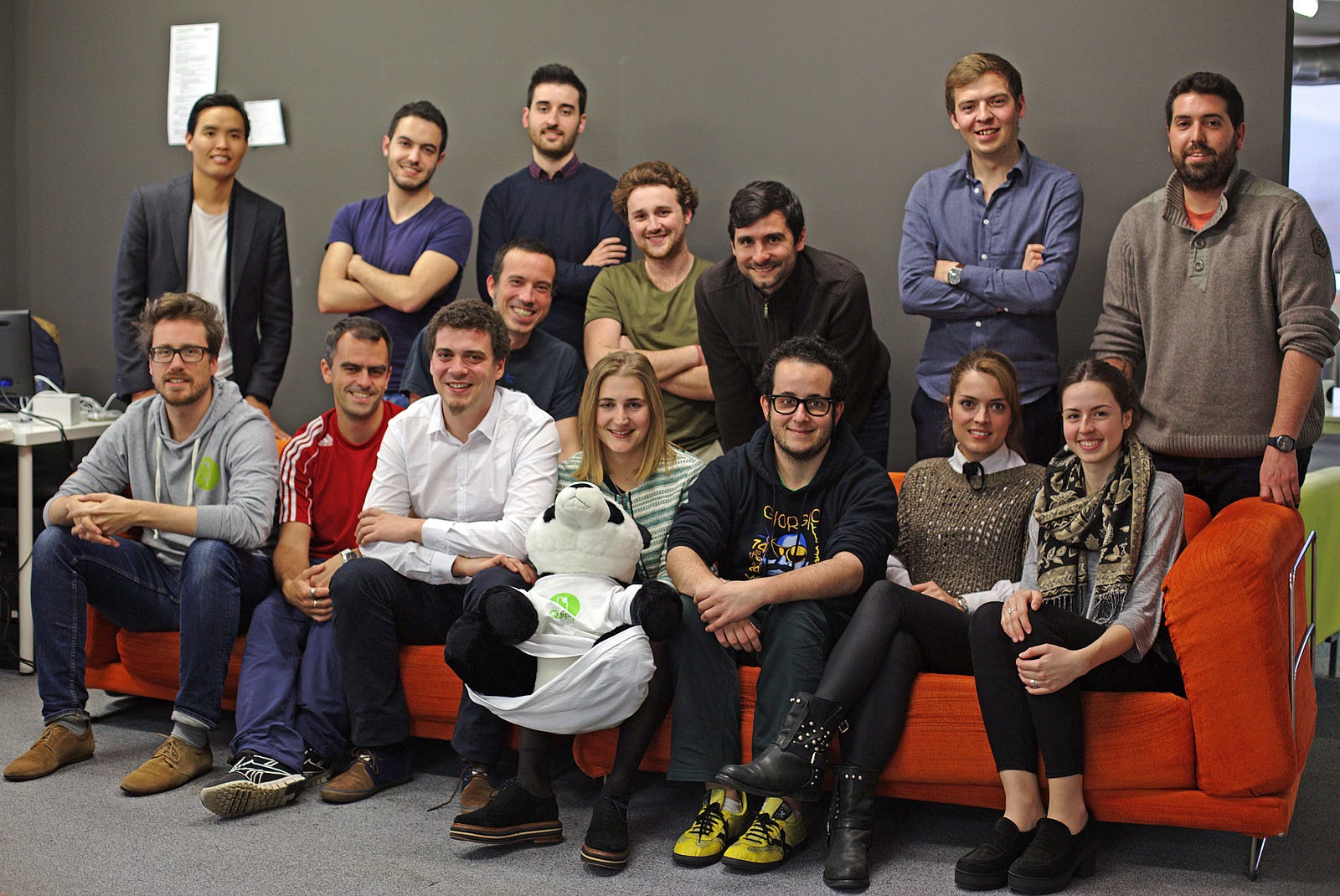Quipu's turning four — learnings and becoming a sales-driven SaaS company

For a startup every year is like little life, with new people, new features, new users and new challenges.
The fourth year for Quipu has been, according to co-founder and CEO Roger Dobaño, the craziest in terms of changes.
We’ve almost built an entire new engineering and design team and we’ve also built a totally new marketing team. On top of that we’ve moving over to being a sales-driven SaaS startup, not only focusing on product.
Last year when Quipu turned three years old, Roger wrote a post on working in a startup and how every year feels like a dog year, an opinion he still holds:
Every year still feels like seven, but we’re growing up to be a mature software company, and that means a new set of changes.
The radical team change
Over the last four years Quipu has slowly but steadily been growing their team as their business grew year over year.
A small development team of a few people where each team members did a little bit of everything, has grown to a full scale team, with several team members dedicated to the back-end, front-enders, a product designer and an architect.
Co-founder and CTO Albert Bellonch puts it like this:
We’ve gone from a startup that more than anything prioritized shipping product and going super-fast, to a more established tech company, where we can use more time and resources on dedicated parts of the product.
Even though the seven person development team is growing to know each-other better, Albert is happy to be able to spend more time talking with each developer:
Before I was coding every day, but now I’ve got time to talk to each team-member, how they’re doing and how they develop themselves professionally. I think that’s super important the faster we grow.
CEO Roger believes there ‘s a clear reason why they’re so happy with the new team:
In the interviews we didn’t only test their code, but more importantly, we tested their ability to think deeply about hard problems.
The reason why we chose to do these tests is that we’ve learned that you can be fast, but if you don’t think properly about the challenges you face, you’ll have many long-term problems.
Also a new sales-team has been built from scratch, with their own sales manager in place to lead the new department.
Until recently Roger was the person leading the sales effort, but being in charge of both the sales and the company as a whole becomes challenging as the company grows:
We always had a competitive advantage with our product, but our sales effort has been too slow too long, and we needed to change that.
The last months Quipu has built a four-member team of energetic sales people to bring their “friendly accounting” software to the world (and they’re looking for more energetic people)
The issues of growing up
The first years of a startup’s life it’s easy to motivate people. The team is excited to be working on something new, something that’s changing the status quo, just like Quipu’s doing in the B2B finance vertical.
But something changes when the team grows and the startup becomes more established, according to Roger:
The phase we’re in right now is one of the most demanding periods for our company. And just as our company has grown the last years, so has our team, and the relation you have with them is not as “familiar” as it used to be. Keep building a strong company culture is as important as understanding that people have lives outside our little tech bubble. I think that’s essential in continuing to grow what’s one of Barcelona’s best teams.
2017 has also been the year of international expansion and the first customers in France has now started using the Quipu product under the new name Zyfro.
Our new marketing and sales team consists of several French people, the first feedback from customers has been good, and we’re eager to see how the rest of the French market responds to the product.
He adds:
That everyone can do business on the internet is the biggest lie I’ve heard. Even though the barriers are low, like any business in order to grow fast you need a notorious product, money and relevant mission.
Quipu has a goal of raising their series A-round sometime at the start of 2018.


